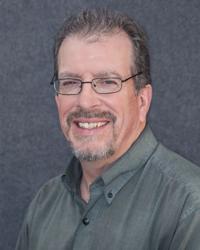The guest opinion by Kathleen Vishner (“Time for churches to reject ‘the elect,’ select theologians,” May 21) was a wonderful clarion call to all of us here in Tucson. She asked churches to show “how Christianity can transform us, make us better, make us stronger, make us kinder, give us purpose, give us a reason to get out bed in the morning.”
Here at St. Francis in the Foothills United Methodist Church, we have been trying very hard to be that kind church — and we are not alone in this pursuit.
A good number of churches and religious organizations here have chosen to be identified, not by the doctrine they espouse, but by the ways in which they live out the presence of the Divine that has so wondrously permeated the walls of our buildings and the corners of our hearts.
Such churches are not about religious dogma, elitism or rules. They are about service and compassion. Or, as Ms. Vishner wrote, “helping mend the world and pushing boundaries” and emphasizing “stewardship over domination.” St. Francis has been doing this work for more than four decades — and other congregations even longer. We are not synthetic Christianity poured from a jug; we are faith-in-action churches.
For example, last fall I received a call from pastor Allison Harrington at Southside Presbyterian Church inviting St. Francis to join in offering sanctuary to a young mother, Rosa Robles Loreto, because the Department of Homeland Security was threatening to separate Rosa from her family through deportation. More than 20 congregations spanning the Judeo-Christian religious spectrum — Jewish, Catholic and Protestant — are now joined together in this effort.
This same type of coalition empowers the Pima County Interfaith Council by bringing together and developing religious, civic and political leaders across our communities so that healthy dialogue is embraced and positive progress is made on the issues that could otherwise divide us.
Dozens of churches across Tucson participate in the weekly Snack Paks program, where thousands of food packs are put together each year by hundreds of volunteers and delivered to impoverished Tucson school children so they and their families have food to eat on the weekends.
The Casa Maria Soup Kitchen in South Tucson depends upon churches throughout our community to help feed those in need. Last year, this program allowed St. Francis to prepare and serve 7,200 gallons of our famous chili to hungry people of all ages.
The envelope-pushing Iskashitaa Network, which helps refugees become active members in the Tucson community while distributing harvested food to needy families, involves volunteers from 15 to 20 area communities.
In partnership with TIHAN (Tucson Interfaith HIV/AIDS Network), our church joins others on the third Thursday of each month to provide company and a free nutritious lunch at the Poz Café for people living with HIV.
Much of the energy for this work by the members of the various congregations derives from a commitment to the type of religious education program for which Ms. Vishner has called.
Every Sunday, just as in many other area churches, our adult education classes address progressive topics such as prison reform and deal with the nuts and bolts of depression, transgender health-care challenges, Native American/First Nation people issues and youth suicide prevention.
Ms. Vishner, as you remarked, too often contemporary religion is defined by those who cannot see beyond their shallow theology, moral absolutes and repetitious superstition. But please don’t give up on all of us! For as you can see, many churches across Tucson are doing the type of work you describe, and it’s transforming us and the Christianity we believe in — and all are welcome to join us!




